5 conclusions from the 2023 UCI Gravel World Championships
WorldTour pros dominate, a lack of women's TV, Van Aert's lessons learned, and more
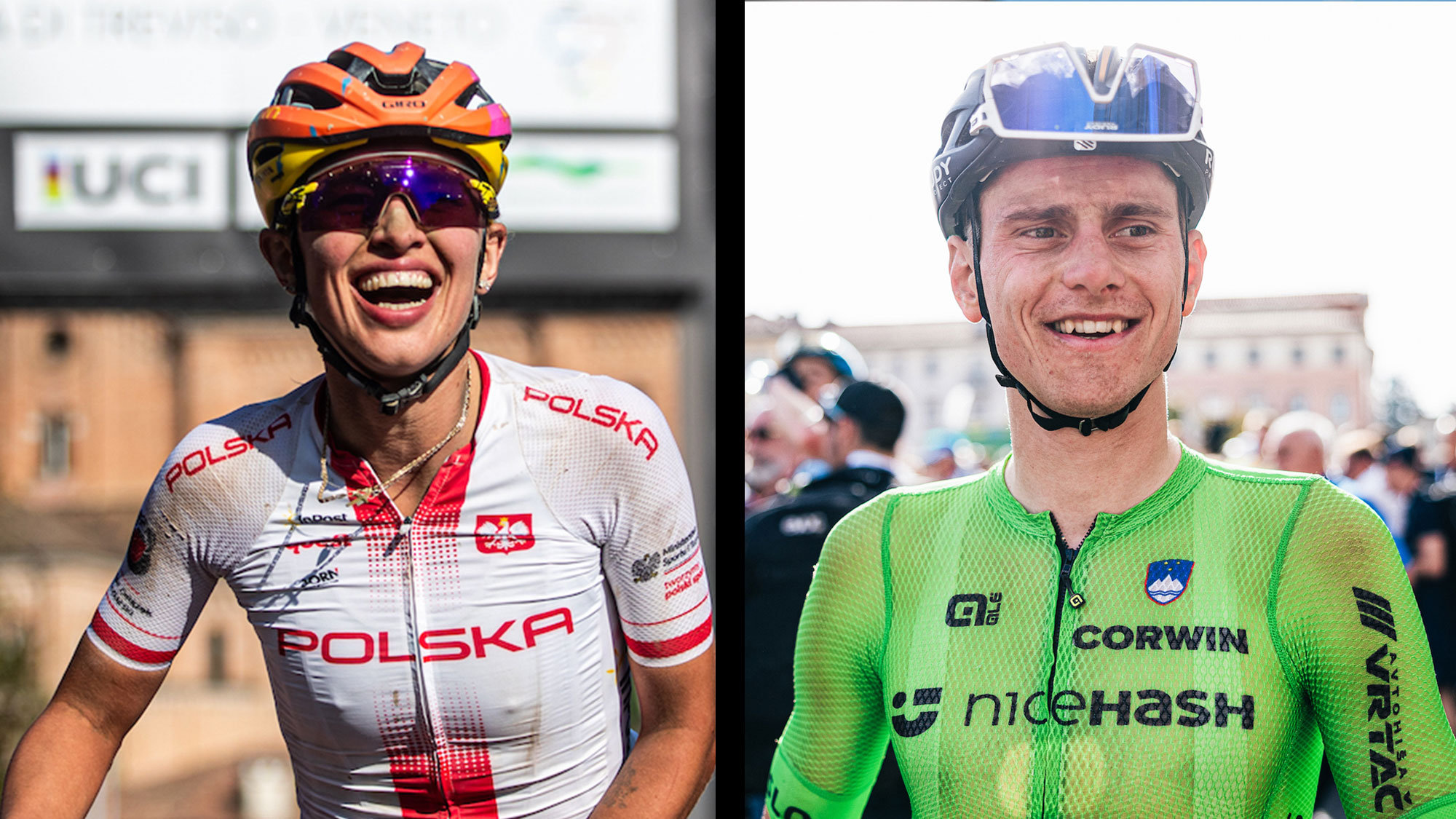
The dust is settling on the second edition of the UCI Gravel World Championships, but the debate about the racing, the organisation, and the future of gravel will surely continue into the winter and shape the future of gravel racing as a sport.
The Veneto region of northern Italy hosted the World Championships for a second year, with the event moved from Vicenza to Prosecco Hills near Treviso just seven weeks before the event. The new organisers faced a mammoth task and largely pulled it off, even if the decision not to produce live television coverage of the women’s race was a huge mistake.
The racing, both broadcast globally and seen from the roadside by Cyclingnews was spectacular and gruelling. The WorldTour roadies are perhaps taking over from the privateers and US riders, but gravel racing remains a discipline apart.
If the fatigue in the riders' legs, the smiles on their faces, and the quantity of beer drunk together at the post-race party were anything to go by, then the spirit of gravel is stronger than ever.
The gravel stars align for Kasia Niewiadoma
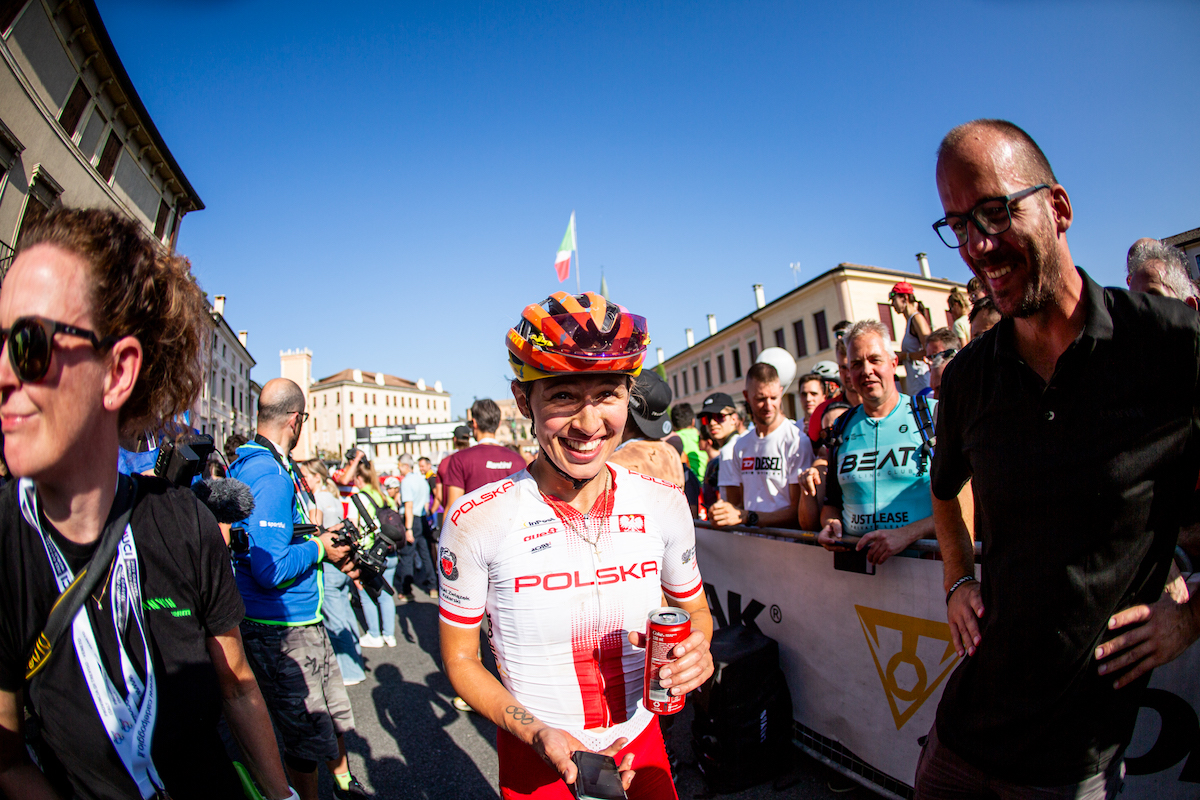
Kasia Niewiadoma was definitely a surprise name on the UCI Gravel World Championships start list. Her Canyon-Sram teammate Tiffany Cromwell is a gravel regular and won last weekend at the UEC European Championships Belgium but Niewiadoma's decision to race in the Veneto was far more instinctive, making her victory far more emotional.
"I looked at the course for and saw an opportunity, so in coordination with the team and with Canyon we decided to go for it," said Niewiadoma, aware that the 1660m of elevation gain during the 140km and the especially hilly final kilometres suited her perfectly.
It turned out to be a savvy call to target her first gravel race. The course and her attacking style seemed to make it a good match.
Get The Leadout Newsletter
The latest race content, interviews, features, reviews and expert buying guides, direct to your inbox!
Her World Championships victory also meant Niewiadoma ended her run of results, that while strong and consistent, always seemed to just fall short of the top spot.
The gravel world title was the 29-year-old Polish rider's first victory since 2019 and gave her a rainbow jersey.
Niewiadoma is expected to race in the rainbow stripes for the first time at Big Sugar Gravel, in the US later this month. She will surely combine ore gravel with her road racing in 2024.
Curing the chaos and confirming women's television coverage for 2024
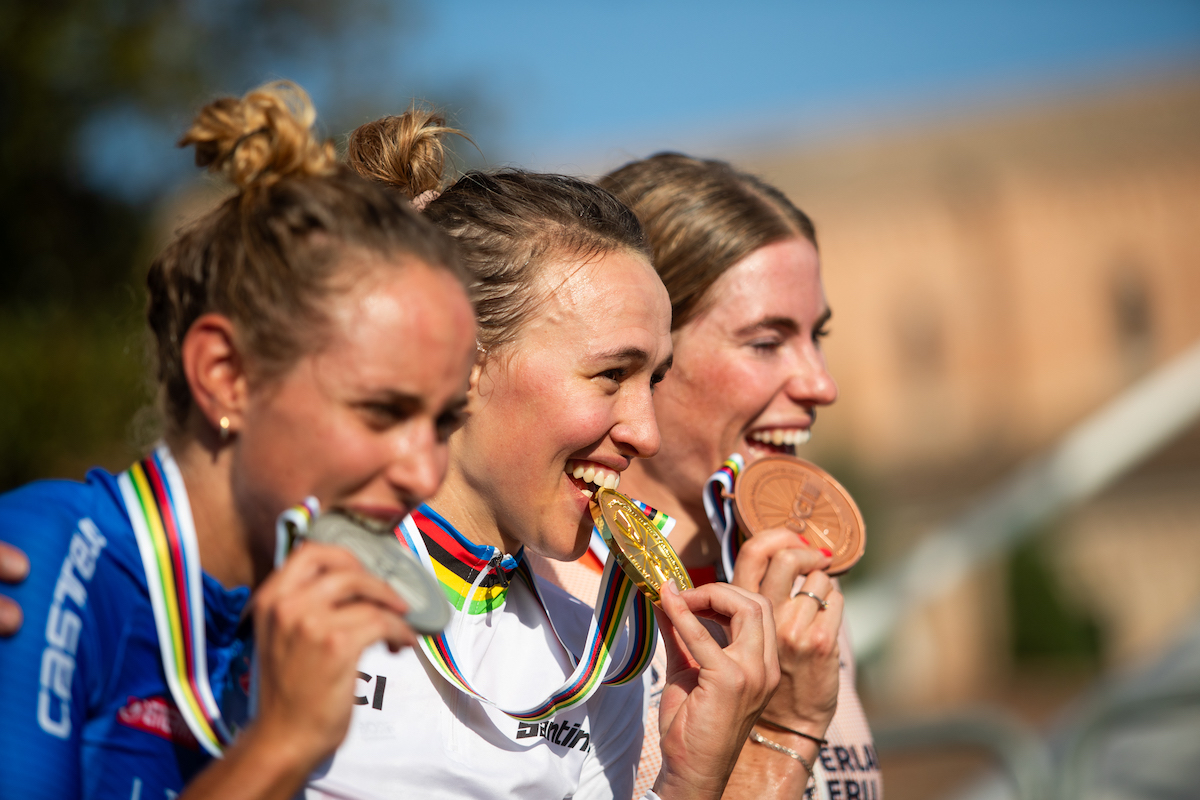
Location changes, organiser changes, late information, and a disappointing – to say the least – lack of broadcast for the women’s race are all hopefully now a thing of the past.
The 2022 and 2023 editions of the UCI Gravel World Championships in Italy were arguably improvised test events for the years to come and the organisers did their best in the time and with the funding they had. They were braver to take up the unknown challenge.
Fortunately, the World Championships pathway is now clear.
Belgium’s Vlaams Brabant region will host the UCI Gravel World Championships in 2024, Nice in France for 2025, Nannup in Australia for 2026, the Haute Savoie region of France for 2027 and AlUla in Saudi Arabia in 2028.
Already far more is known about the course for 2024 than riders knew two months out from this year's edition, with the 2023 European Championships race taking place over in the same area, and what is likely to be many of the same roads.
Certainty on course location and route design can already be seen, with many big-name riders already stating their intent to be on the start line for the rainbow jersey race in 2024.
That includes Belgian rider Wout van Aert, who had a less than successful first outing at his first Gravel World Championships in Italy, and Australia's Tiffany Cromwell who won on European Championships race but who could not claim the world title.
The question of broadcasts will now be resolved for future years and discrimination should finally be a thing of the past.
Television production of the women's race clearly wasn’t made mandatory when the
UCI awarded the event, with even the bid guide for the 2030 UCI Gravel World Championships stating that "television production is not compulsory."
Amid the furore over the lack of broadcast for the women’s race on Saturday, the UCI issued a belated statement which said the "UCI will make it mandatory for event organisers to provide TV production for both the Men Elite and the Women Elite races."
The UCI surely knew weeks ago there would be no coverage of the women's race but did little to help resolve the problem. The organisers made an economically based decision that was wrong.
Similar failings and discrimination cannot happen in the future.
Wout van Aert learns some hard lesson about gravel racing
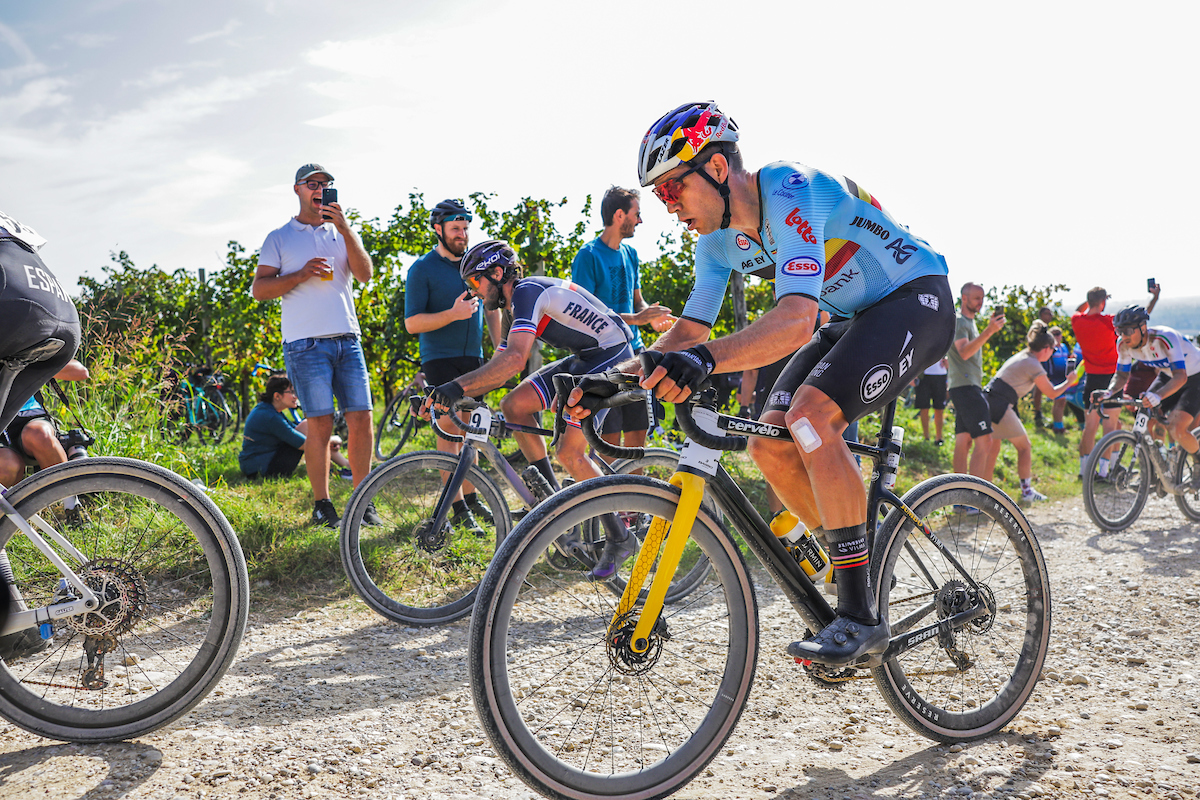
Wout van Aert sat in the road beyond the finish line of the UCI Gravel World Championships, fatigued after a hard 170km race, disappointed that mechanical problems had taken him out of the battle for the medals and no doubt aware that gravel racing is arguably harder than any other discipline in the sport.
Van Aert is widely acknowledged as the rider with the widest talents in the sport. He is a superb road race and Classics rider, a three-time cyclocross world champion, world-class time trialist and has played vital roles in Jonas Vingegaard's Tour de France victories. Yet he is a gravel novice and it showed on Sunday in the Veneto.
The Belgian crashed and suffered mechanical problems that took him out of the front group before the final decisive climbs. He admitted that his lack of experience of fixing his own punctures out on the road and perhaps even of his gravel set-up cost him dear.
"In gravel races, everything has to go well in terms of material and that was not the case," Van Aert admitted.
"I had an early problem with my saddle, then crashed and had a puncture too. The crash and the puncture were my fault for being careless. When I had a puncture I couldn't get my tire repaired quickly. Something was broken in the valve and I lost a lot of time because of that."
No doubt Van Aert will have polished and practised his gravel bike mechanical skills before next year's World Championships at home in Belgium.
Gravel riders vs WorldTour road riders – An unfair rivalry?
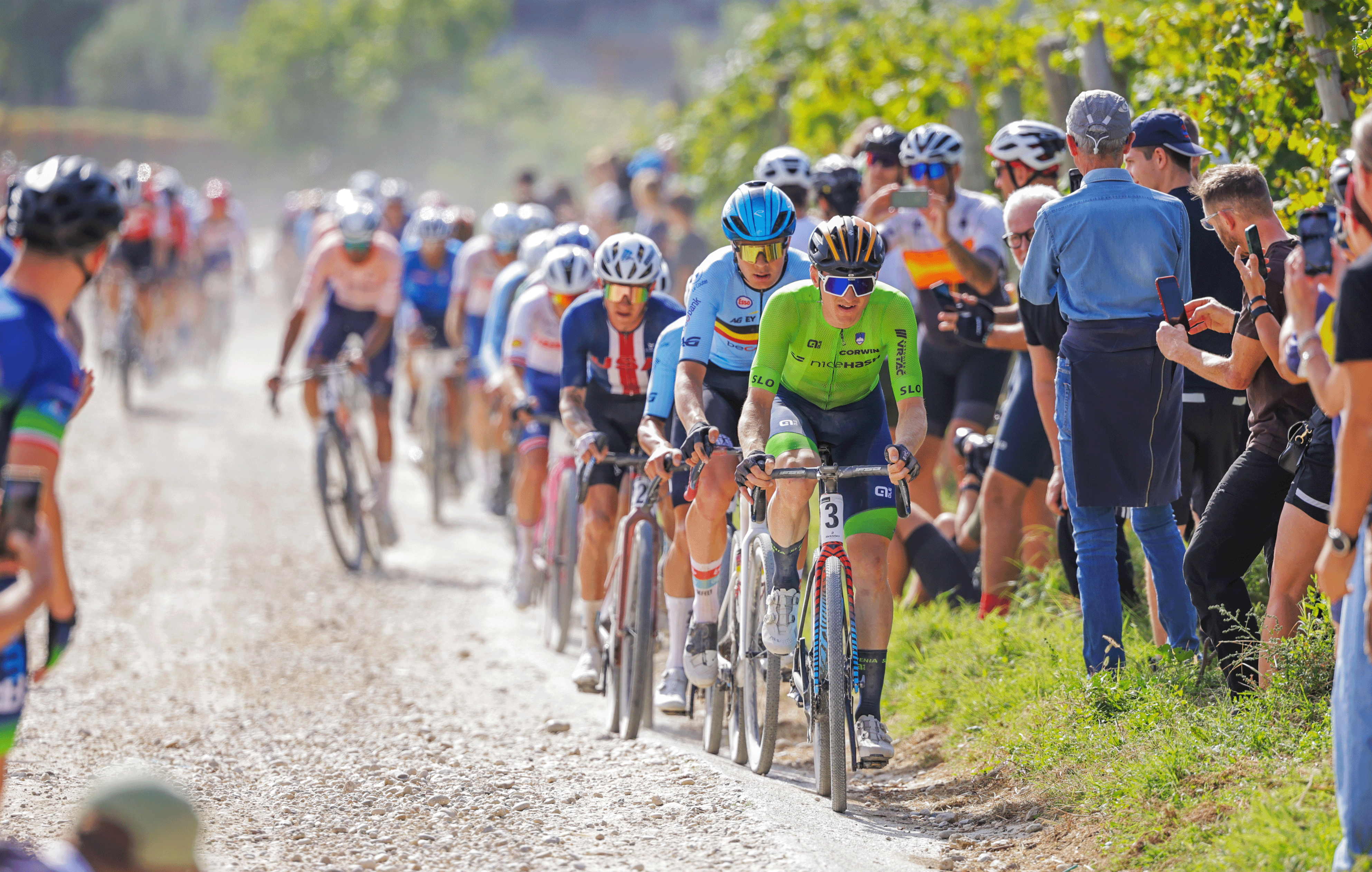
At the UCI Gravel World Championships, the gravel privateers face competition from an influx of WorldTour road professionals, sparking a perhaps unfair rivalry and so changing the unwritten rules of the discipline and so diluting the very essence of the spirit of gravel.
This year both the men's and women's elite races were won by WorldTour road riders, making their gravel racing debut. The results were packed with road riders, with the USA's Keegan Swenson one of the few gravel racers able to compete for the medals.
There are many theories as to why this is the case, with the European gravel courses somewhat easier to handle than the gravel roads of Kansas or Colorado. However, former road professional and now gravel privateer Nicolas Roche is convinced it is more about fitness levels, physiology and team support than the geology of the gravel.
"I just think that WorldTour riders are just better trained and better looked after, they are racehorses and then the rest are trying to do our best. Even the top guys in the US would never have the support that you can have here and the amount of race days," Roche suggested.
The support part of the equation went beyond the preparation as well, as it was also a factor clearly visible in the Veneto races.
While even Belgium did not cover the costs of rider logistics and offer full support, the likes of Wout Van Aert, Florian Vermeersch and Alejandro Valverde had full support from Jumbo-Visma, Lotto-Dstny and Movistar. Van Aert had a Jumbo-Visma virtually all to himself at the start, with team staff positioned along the race route.
Bahrain Victorious supported Matej Mohorič, and Kasia Niewiadoma had the full backing of her trade team sponsors Canyon and Sram, while the gravel privateers mostly operated independently, with limited and often volunteer support crews.
World Championships gravel is now serious business, even for many WorldTour road teams but do the advantages of the WorldTour road riders make it an unfair rivalry?
That is a debate for the years ahead as the roadies take over from the privateers more and more.
Adding gravel to the cycling calendar conundrum
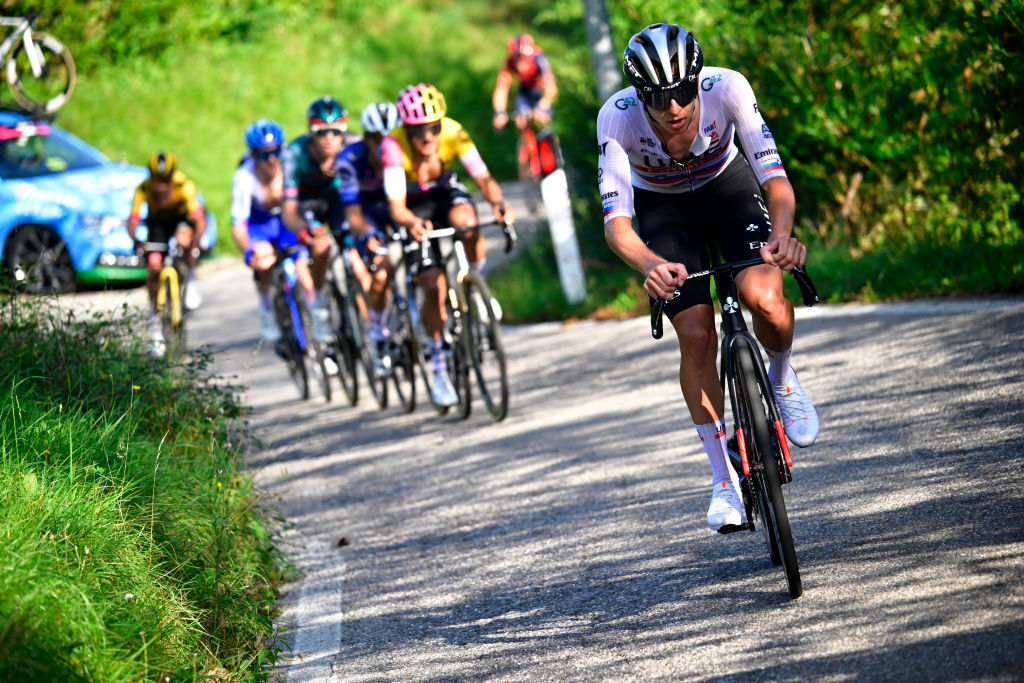
The rise in the interest in gravel racing and the UCI World Championships adds another complexity to the cycling calendar conundrum, creating another problem the UCI needs to resolve quickly.
Riders seem happy about the Gravel Worlds' placing at the end of the season, after the major races in the USA, the UCI Gravel Series qualification events and the major road races. But if gravel continues to grow, the Worlds most be a protected and prestigious event so that the best riders in the discipline and in cycling fight for the rainbow jerseys.
This year, Mathieu van der Poel had already ended his season after an intense programme of cyclocross, road racing and mountain biking, while Tom Pidcock was in Canada at the weekend, racing in the mountain bike world cup after also racing cyclocross and a busy road season with Ineos Grenadiers.
Tadej Pogačar and other riders want to add the Gravel World Championships to their calendar but can't be competitive if Il Lombardia is held just the day before.
The best women in professional cycling face similar problems, with a WorldTour race in China at the end of the season coming after a long break in an intense calendar that makes it difficult for the biggest riders to be competitive in the Gravel Worlds.
The UCI plans to reform and overhaul the road race calendars for 2026. Now they have to find some space and suitable race dates for the biggest gravel races too and especially their own UCI Gravel World Championships.

Stephen is one of the most experienced member of the Cyclingnews team, having reported on professional cycling since 1994. He has been Head of News at Cyclingnews since 2022, before which he held the position of European editor since 2012 and previously worked for Reuters, Shift Active Media, and CyclingWeekly, among other publications.